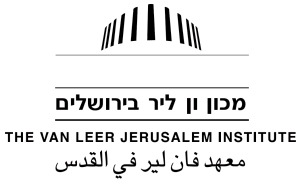Growing up is the pits in the best of times. Growing up Muslim in America has special complexities. Being Muslim in America, diagnosed with bipolar disorder, coming of age during and after September 11, and becoming a public speaker on the religion and culture of Islam could be a formula for collision. Haroon Moghul, Fellow in Jewish-Muslim relations at the Shalom Hartman Institute, has many: with the world, with God, with himself. His book weaves together stories of personal, political, and religious development, and answers questions about Islam for the perplexed of any faith.
This season of the Tel Aviv Review is made possible by The Van Leer Jerusalem Institute, which promotes humanistic, democratic, and liberal values in the social discourse in Israel.






Punishing someone for fear of oneself being punished otherwise–it’s called secondary punishment in some models of group selection in evolutionary biology, and it significantly extends the evolution of cooperation in such models. But cooperation need not be a good thing, for group selection just shifts competition from individuals to groups; while warfare the most evident case, most politics will do too. So is secondary punishment stifling? In one sense, obviously so. But consider that Puritanism which was, well, quite puritan, also significantly extended trade networks and associated carried debt–all the way across the Atlantic for a while–which, long term, evolved a denser trade network overall which allowed jumping from one sub network to another which created more choice which accelerated economic development. The ossification Hartman describes in Muslim dominated lands is quite real, but I think the driving variable is marginal religion vs establishment. Established control weeds away alternatives. In evolution, this is called spite: harming one’s own absolute potential while harming that of rivals more, leaving one on top. I think what you see in Muslim dominated countries are evolved spiteful regimes, and these have existed in Christianity as well.
Puritans were marginalized by the Anglican Church, creating the trust networks needed to soon develop new forms of calculated risk in the extension of trade networks, networks at first on the margins of the economy (in the hinterland, not dealing with Crown patronage in London). We have seen deviation in Islam too, suppressed by the State; these have evolved terrorist offshoots, and, like it or not, terrorism is a quite cooperative phenomenon. The question is how deviance is treated, what happens to the marginalized. The British Civil War brought Puritans prominence. The Restoration did not completely erase that, even with a recovered State Church, and you see, in the formation of the Royal Society with the patronage of the Crown, British science a refuge for some of former Puritan connection.
Consider the present as just another small frame in a long time line of history. It is not special, you are not special, your opinions and hopes in themselves have not been planted into the world as an extra-causal incarnation. The key presently, I think, is how you let your potential future enemy thrive, for only in that way can that potential be changed. The US, UK, and EU may be the best place for change in Muslim society–unless we evolve our own hierarchies of spiteful control. And this is the great danger of Trump.